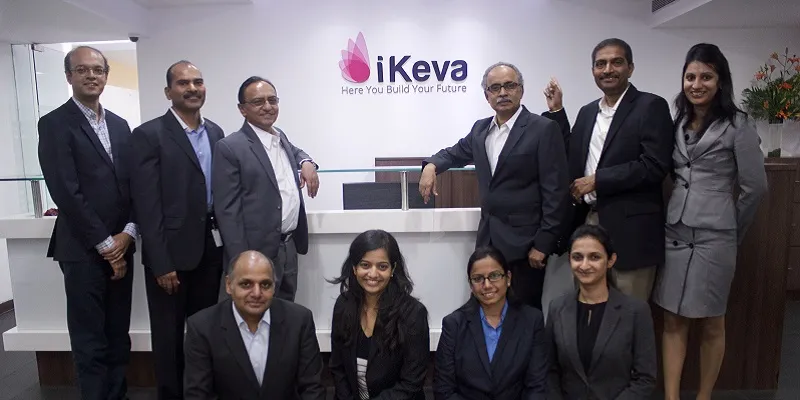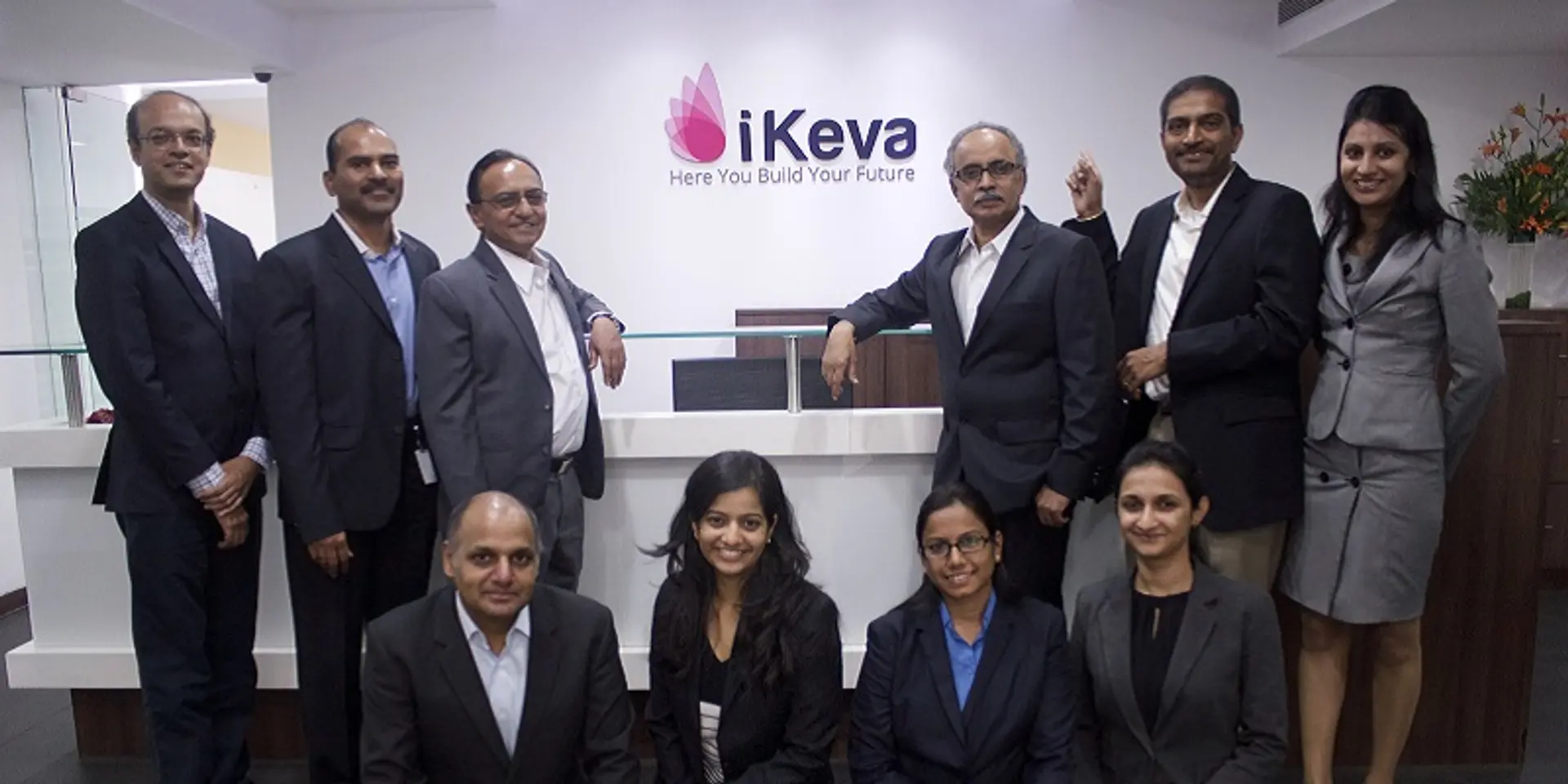In the crowded co-working space, here’s how iKeva is building a niche
With the co-working concept taking off in India, Hyderabad-based iKeva aims to help the startup community function in a more flexible, collaborative and productive manner.
A concept that has evolved in the West, co-working is growing on people in India. Apart from providing an efficient working space, the open, barrier-less office culture plays a critical role in building a community of like-minded people.
Coffee shops and cafes still may be important meeting locations, but they’ve made way for co-working spaces that foster creativity and communication. Not only are they cost effective, shared offices are equipped with everything an office needs – meeting rooms, great Wi-Fi connectivity and the much-needed foosball tables.
Things have changed from a decade back when the idea was to use basic infrastructure and resources that working from home couldn’t provide. With time, the co-working concept began to evolve. It was something Monika Mishra, working in the real estate sector, noticed. She saw that most people would inquire or look for productive work spaces for smaller teams.
She soon established iKeva, a co-working space that other than solving the problem of providing shared workspaces for firms focuses on bringing like-minded professionals together to build and grow through each other’s network.

Building the team
Monika realised that the biggest pain point for teams that are growing or starting up is the cost of real estate (typical rental office spaces), operational costs and basic housekeeping/maintenance of facilities.
In 2012, the problems were persistent and there was really no clear solution for people starting up.
“I had just met our Co-founder, Sateesh Andra, an investor and the founder of Endiya Partners, when he was scouting for productive spaces for his fund as well as startups he interacted with and/ or funded. There was a just relevant option. These pain points led to the birth of iKeva,” Monika explains.
Apart from Monika, the founding team of iKeva comprises the founding team of Endiya Partners - Sateesh Andra and Dr Ramesh Babu. iKeva has now grown to a team of 35 people. The core team includes Pardhasaradhi Karingula, who looks after real estate and vendor management and has over 20 years of experience in the real estate sector. Srinivas Murthy, with 27 years of experience in diverse sectors such as manufacturing, aerospace, skill development, engineering services and general management, is also part of the team.
In the co-working space
Today, most co-working spaces are about services and benefits. The common benefits include technological support, fundraising and networking opportunities, mentorship, basic amenities such a stocked pantry, cultural and de-stressing activities, a friendly non-competitive atmosphere, and a sense of community. This, of course, excludes the wide range of offers on renting desks.
All co-working spaces, however, have one common offering – a hassle-free environment for the optimum growth of a business. This makes these spaces the perfect setting for busy entrepreneurs to co-work in.
Several co-working spaces exist these days - Blume Ventures-backed Bhive, Y-combinator-incubated Innov8, InstaOffice, and AltF Coworking, Sequoia backed Awfis, and WeWork, which recently started operations in India. WeWork, the New York based co-working space has a presence in over 15 countries.
“The best part about co-working, apart from being frugal and cost-effective, is also the fact that it brings in the right connects and networks,” explains the founder of a startup, based out of a co-working space in Bengaluru.
Building the core differentiators
With several players operating in the space, it was important for Monika to bring in differentiators to stand out. She says her idea was to not just provide shared office spaces to companies, but also provide a complete ecosystem of lawyers, accountants, marketing consultants and “everything that a company needs”.
The social angle was also an important aspect. People have an inherent need to meet other people and mingle, and the network effect of a community is invaluable.
“The iKeva USP is our community of members, who work together and collaborate across domains to help each other in various projects. Currently, we have six centres operating in five cities, namely Hyderabad, Bengaluru, Chennai, Mumbai, and Gurgaon,” she says.
The main differentiator for iKeva is the fact that their work spaces are more suited to small teams rather than small companies, ideal when a company is just starting up.
The centres are professionally set up, are fun places to work in and offer the opportunity to mingle. She says the community engages and helps each other grow.
“At iKeva, we provide premium infrastructure at affordable rates, timely SLA based service and a highly motivated customer-oriented team,” Monika explains.
The challenges along the way
While there are several co-working spaces, setting one up isn’t easy. Monika explains that apart from regular startup challenges like funding and hiring, one big challenge of a co-working space is ensuring the right value to customers.
She says the idea isn’t just about providing a space to work, but building an environment that helps members grow.
“For us, it is a constant challenge to ensure that we deliver value to our customers. Be it providing member benefits that truly benefit our community, or helping the community connect with each other for services, we ensure that IKeva acts as an enabler at every step,” Monika says.
To make sure they do this, the team claims that they take constant feedback and organise town halls every month where members can actively list down their concerns. They involve members in the decision-making process of working space design. The team is also rewarded for logging complaints and feedback from clients.
Another challenge was to ensure that processes are replicated and a consistent experience is delivered with a lean team.
Closely related to the challenges of expansion is the value engineering of the supply chain; constituency of service is largely dependent on suppliers and vendors.
Monika says real estate costs are also a major overhead and it requires careful management to ensure they get the right deal for the right location.
“We have largely overcome this by monitoring the costs of moving parts and standardising parts of construction (such as fit outs) and agreements with our vendors. We continuously work on innovative deals with landlords and developers, roping them in as partners rather than just vendors,” she explains.
What’s in the future?
While the team refused to share revenue details, they claim to be profitable. They have grown to 1,200 seats in an over 70,000 sq ft area. The team claims to host over 250 companies with 3,500 members.
iKeva earns revenue through a subscription model at their co-working centres across various cities. They also earn through rentals of co-working/shared office seats and allied services such as event spaces and use of meeting rooms.
“Our aim is to expand to 60-80 centres in the next to three to four years. We want to have a presence in all major metro cities with more centres and expand to other Tier-2 cities,” Monika says. The future of work is co-working. And Monika is keen to tap the opportunity.



